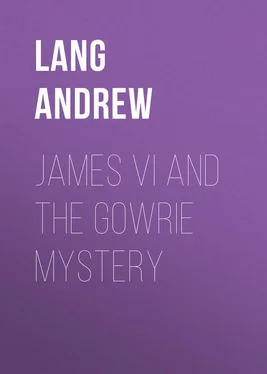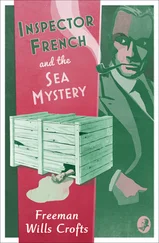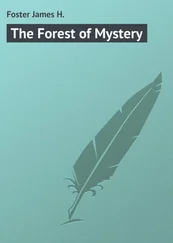Andrew Lang - James VI and the Gowrie Mystery
Здесь есть возможность читать онлайн «Andrew Lang - James VI and the Gowrie Mystery» — ознакомительный отрывок электронной книги совершенно бесплатно, а после прочтения отрывка купить полную версию. В некоторых случаях можно слушать аудио, скачать через торрент в формате fb2 и присутствует краткое содержание. Жанр: foreign_antique, foreign_prose, на английском языке. Описание произведения, (предисловие) а так же отзывы посетителей доступны на портале библиотеки ЛибКат.
- Название:James VI and the Gowrie Mystery
- Автор:
- Жанр:
- Год:неизвестен
- ISBN:нет данных
- Рейтинг книги:5 / 5. Голосов: 1
-
Избранное:Добавить в избранное
- Отзывы:
-
Ваша оценка:
- 100
- 1
- 2
- 3
- 4
- 5
James VI and the Gowrie Mystery: краткое содержание, описание и аннотация
Предлагаем к чтению аннотацию, описание, краткое содержание или предисловие (зависит от того, что написал сам автор книги «James VI and the Gowrie Mystery»). Если вы не нашли необходимую информацию о книге — напишите в комментариях, мы постараемся отыскать её.
James VI and the Gowrie Mystery — читать онлайн ознакомительный отрывок
Ниже представлен текст книги, разбитый по страницам. Система сохранения места последней прочитанной страницы, позволяет с удобством читать онлайн бесплатно книгу «James VI and the Gowrie Mystery», без необходимости каждый раз заново искать на чём Вы остановились. Поставьте закладку, и сможете в любой момент перейти на страницу, на которой закончили чтение.
Интервал:
Закладка:
Granting James’s notorious love of disentangling a mystery, granting his love of money, and of hunting, I agree with Mr. Tytler in seeing nothing improbable in this narration. If the Master wanted to lure the King to Perth, I cannot conceive a better device than the tale which, according to the King, he told. The one improbable point, considering the morals of the country, was that Ruthven should come to James, in place of sharing the gold with his brother. But Ruthven, we shall see, had possibly good reasons, known to James, for conciliating the Royal favour, and for keeping his brother ignorant. Moreover, to seize the money would not have been a safe thing for Ruthven to do; the story would have leaked out, questions would have been asked. James had hit on the only plausible theory to account for a low fellow with a pot of gold; he must be ‘a practising Papist.’ James could neither suppose, nor expect others to believe that he supposed, one pot of foreign gold enough ‘to bribe the country into rebellion.’ But the pot, and the prisoner, supplied a clue worth following. Probabilities strike different critics in different ways. Mr. Tytler thinks James’s tale true, and that he acted in character. That is my opinion; his own the reader must form for himself.
Ruthven still protested. This hunt of gold was well worth a buck! The prisoner, he said, might attract attention by his cries, a very weak argument, but Ruthven was quite as likely to invent it on the spur of the moment, as James was to attribute it to him falsely, on cool reflection. Finally, if James came at once, Gowrie would then be at the preaching (Tuesdays, Thursdays, and Sundays were preaching days), and the Royal proceedings with the captive would be undisturbed.
Now, on the hypothesis of intended kidnapping, this was a well-planned affair. If James accepted Ruthven’s invitation, he, with three or four servants, would reach Gowrie House while the town of Perth was quiet. Nothing would be easier than to seclude him, seize his person, and transport him to the seaside, either by Tay, or down the north bank of that river, or in disguise across Fife, to the Firth of Forth, in the retinue of Gowrie, before alarm was created at Falkland. Gowrie had given out (so his friends declared) that he was to go that night to Dirleton, his castle near North Berwick, 14 14 Carey to Cecil. Berwick, Border Calendar , vol. ii. p. 677, August 11, 1600.
a strong hold, manned, and provisioned. Could he have carried the King in disguise across Fife to Elie, Dirleton was within a twelve miles sail, on summer seas. Had James’s curiosity and avarice led him to ride away at once with Ruthven, and three or four servants, the plot might have succeeded. We must criticise the plot on these lines. Thus, if at all, had the Earl and his brother planned it. But Fate interfered, the unexpected occurred — but the plot could not be dropped . The story of the pot of gold could not be explained away. The King, with royal rudeness, did not even reply to the new argument of the Master. ‘Without any further answering him,’ his Majesty mounted, Ruthven staying still in the place where the King left him. At this moment Inchaffray, as we saw, met Ruthven, and invited him to breakfast, but he said that he was ordered to wait on the King.
At this point, James’s narrative contains a circumstance which, confessedly, was not within his own experience. He did not know, he says, that the Master had any companion. But, from the evidence of another, he learned that the Master had a companion, indeed two companions. One was Andrew Ruthven, about whose presence nobody doubts. The other, one Andrew Henderson, was not seen by James at this time. However, the King says, on Henderson’s own evidence, that the Master now sent him (about seven o’clock) to warn Gowrie that the King was to come. Really it seems that Henderson was despatched rather later, during the first check in the run.
It was all-important to the King’s case to prove that Henderson had been at Falkland, and had returned at once with a message to Gowrie, for this would demonstrate that, in appearing to be unprepared for the King’s arrival (as he did), Gowrie was making a false pretence. It was also important to prove that the ride of Ruthven and Henderson to Falkland and back had been concealed, by them, from the people at Gowrie House. Now this was proved. Craigengelt, Gowrie’s steward, who was tortured, tried, convicted, and hanged, deponed that, going up the staircase, just after the King’s arrival, he met the Master, booted, and asked ‘where he had been.’ ‘An errand not far off,’ said the Master, concealing his long ride to Falkland. 15 15 Deposition of Craigengelt, a steward of Gowrie’s, Falkland, August 16, 1600. Pitcairn, ii. 157.
Again, John Moncrieff, a gentleman who was with Gowrie, asked Henderson (who had returned to Perth much earlier than the King’s arrival) where he had been, and he said ‘that he had been two or three miles above the town.’ 16 16 Pitcairn, ii. p. 185.
Henderson himself later declared that Gowrie had told him to keep his ride to Falkland secret. 17 17 Pitcairn, ii. p. 179.
The whole purpose of all this secrecy was to hide the fact that the Ruthvens had brought the King to Perth, and that Gowrie had early notice, by about 10 a.m., of James’s approach, from Henderson. Therefore to make out that Henderson had been in Falkland, and had given Gowrie early notice of James’s approach, though Gowrie for all that made no preparations to welcome James, was almost necessary for the Government. They specially questioned all witnesses on this point. Yet not one of their witnesses would swear to having seen Henderson at Falkland. This disposes of the theory of wholesale perjury.
The modern apologist for the Ruthvens, Mr. Louis Barbé, writes: ‘We believe that Henderson perjured himself in swearing that he accompanied Alexander’ (the Master) ‘and Andrew Ruthven when.. they rode to Falkland. We believe that Henderson perjured himself when he asserted, on oath, that the Master sent him back to Perth with the intelligence of the King’s coming.’ 18 18 Barbé, p. 91.
On the other hand, George Hay, lay Prior of the famous Chartreux founded by James I in Perth, deponed that Henderson arrived long before Gowrie’s dinner, and Peter Hay corroborated. But Hay averred that Gowrie asked Henderson ‘who was at Falkland with the King?’ It would not follow that Henderson had been at Falkland himself. John Moncrieff deponed that Gowrie said nothing of Henderson’s message, but sat at dinner, feigning to have no knowledge of the King’s approach, till the Master arrived, a few minutes before the King. Mr. Rhynd, Gowrie’s tutor, deponed that Andrew Ruthven (the Master’s other companion in the early ride to Falkland) told him that the Master had sent on Henderson with news of the King’s coming. If Henderson had been at Falkland, he had some four hours’ start of the King and his party, and must have arrived at Perth, and spoken to Gowrie, long before dinner, he himself says at 10 a.m. Dinner was at noon, or, on this day, half an hour later. Yet Gowrie made no preparations for welcoming the King.
It is obvious that, though the Hays and Moncrieff both saw Henderson return, booted, from a ride somewhere or other, at an early hour, none of them could prove that he had ridden to Falkland and back. There was, in fact, no evidence that Henderson had been at Falkland except his own, and that of the poor tortured tutor, Rhynd, to the effect that Andrew Ruthven had confessed as much to him. But presently we shall find that, while modern apologists for Gowrie deny that Henderson had been at Falkland, the contemporary Ruthven apologist insists that he had been there.
Читать дальшеИнтервал:
Закладка:
Похожие книги на «James VI and the Gowrie Mystery»
Представляем Вашему вниманию похожие книги на «James VI and the Gowrie Mystery» списком для выбора. Мы отобрали схожую по названию и смыслу литературу в надежде предоставить читателям больше вариантов отыскать новые, интересные, ещё непрочитанные произведения.
Обсуждение, отзывы о книге «James VI and the Gowrie Mystery» и просто собственные мнения читателей. Оставьте ваши комментарии, напишите, что Вы думаете о произведении, его смысле или главных героях. Укажите что конкретно понравилось, а что нет, и почему Вы так считаете.












